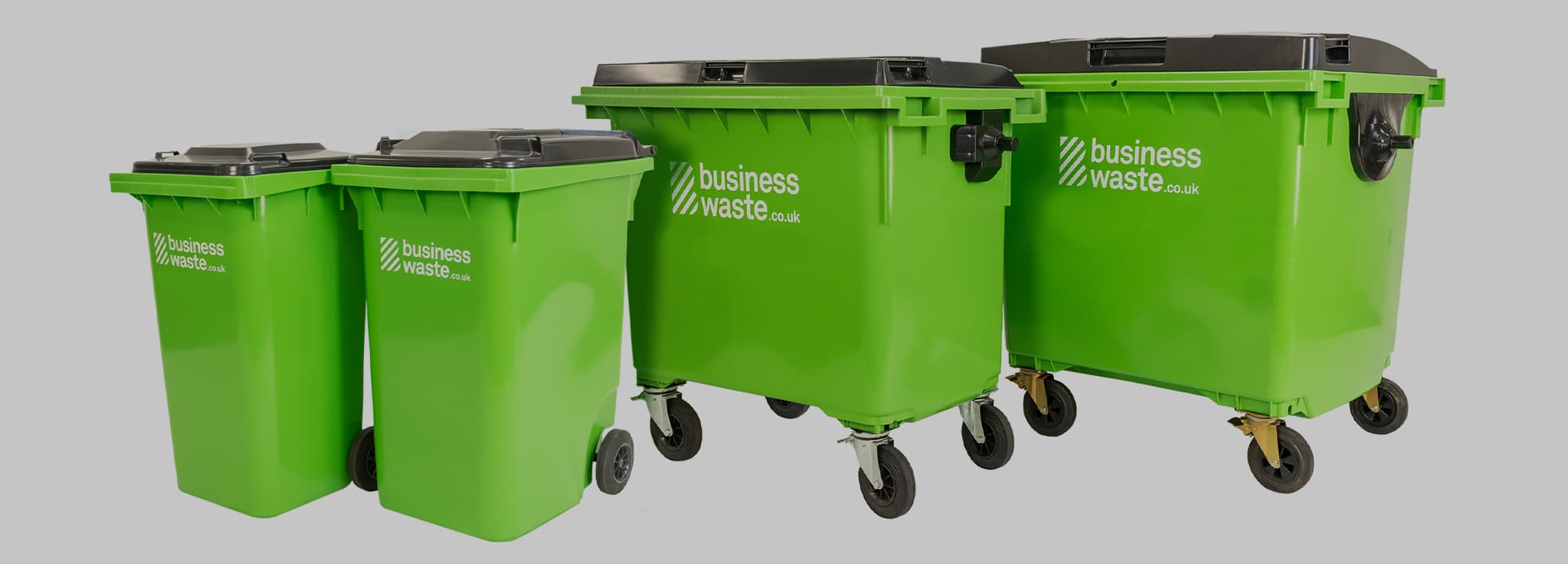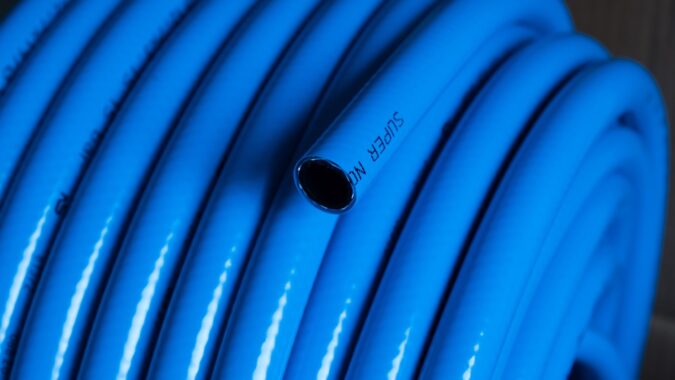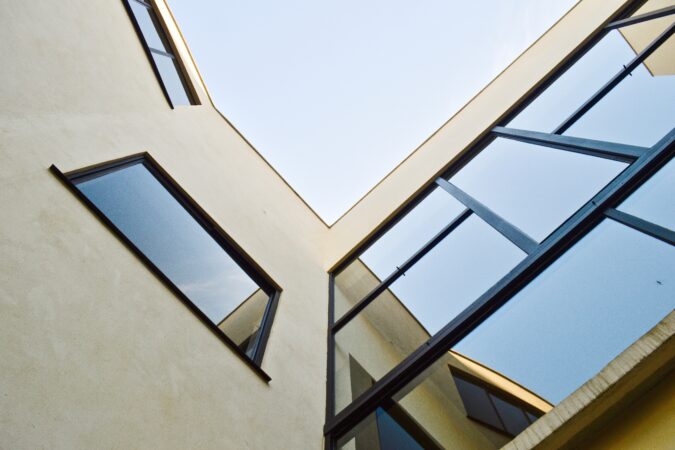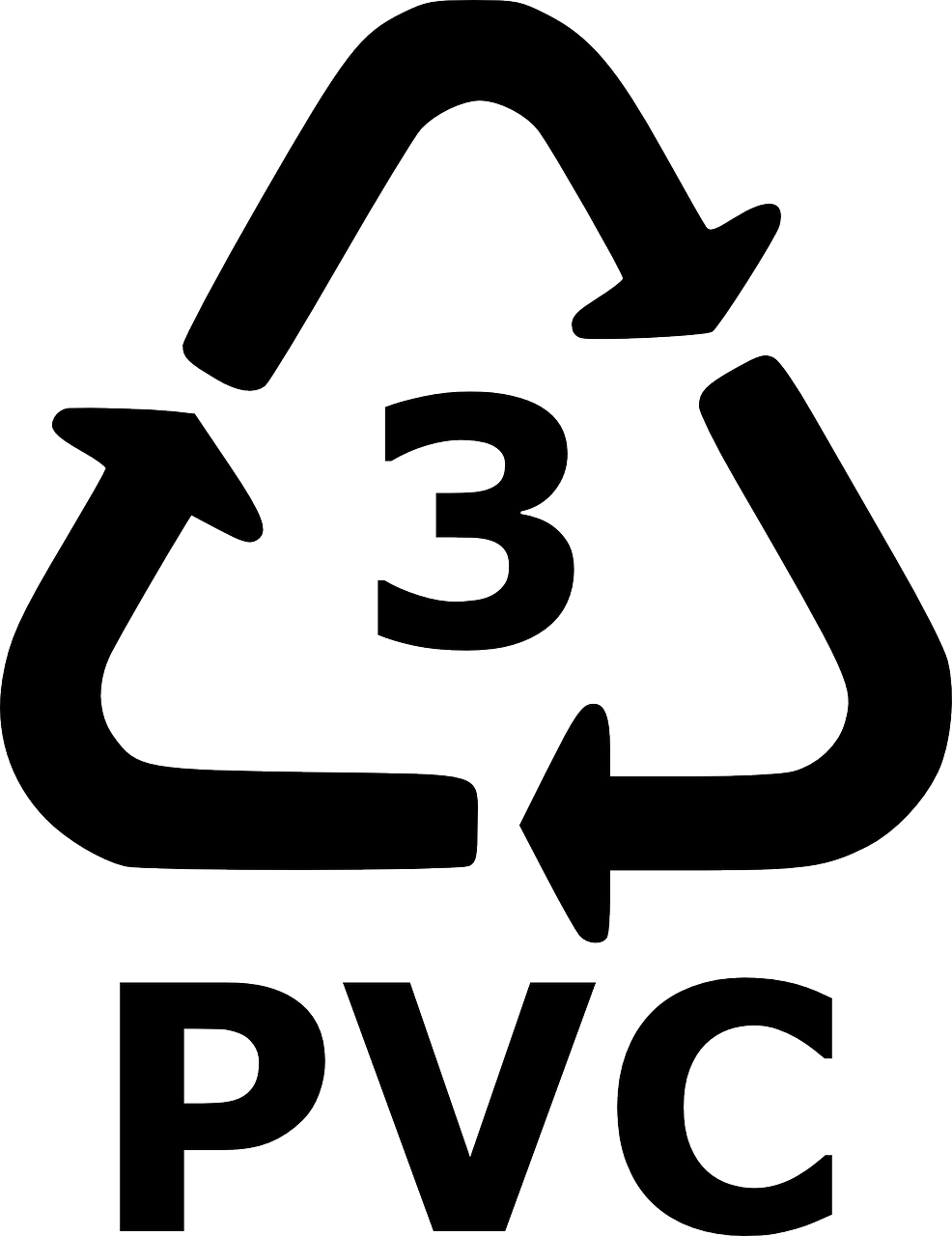
PVC Recycling
Polyvinyl chloride (PVC) is the third-most used plastic globally, after PET and PP. It’s commonly used in the construction industry for pipes and signs, as well as in healthcare applications and clothing. Recycling PVC is possible, but it must be separated from other plastic types for the recycling process to work.
All sorts of businesses and industries produce PVC waste that can be recycled. You can store used PVC with other types of plastic waste, but when it comes to recycling PVC it will be processed separately. Recycled PVC can be transformed into new conduits and piping for a sustainable solution.
Discover everything you need to know about PVC recycling on this page. If you’re ready to start recycling PVC, call 0800 211 8390 or contact us online today for a free quote for plastic waste collection.

Get a free quote
Get a fast FREE quote for PVC recycling
- Free quote within 1 hr
- Any type of PVC waste
- FREE bins and delivery
- We cover all of the UK
What is PVC?
PVC is a thermoplastic polymer that’s naturally white with a rigid yet brittle structure. It’s resistant to environmental degradation, chemicals, and alkalis, has high tensile strength, and is relatively cheap compared to other plastics. PVC has recycling code 3 and is widely available and recyclable. There are two main forms of PVC:
- Rigid or unplasticized polymer (RPVC or uPVC) – used in plumbing, sewage, and agriculture applications, such as for pipes and window frames.
- Flexible plastic (regular PVC) – contains additives of plasticizers like phthalates. Used in electrical wires and flooring for homes, hospitals, and schools. PVC sometimes acts as an effective replacement for rubber.
Every year more than 20 million tonnes of PVC are produced around the world to create all sorts of items. Many products are made from PVC due to its density, hardness, strength, and affordability, including:
- Pipes
- Cables
- Flooring
- Window and door profiles
- Blood bags
- Surgical gloves
- Mattress and bed covers
- Blister packs
- Car interior door panels
- Mud flaps
- Clothing and shoes
Is PVC recyclable?
PVC is recyclable in many forms. It can be reused, regrind, melted, and extruded numerous times. PVC must be recycled separately from other plastic waste and materials due to the high chlorine content in raw PVC and the high levels of hazardous additives the polymer contains, to achieve the desired material quality.
To achieve a good quality of recycling material most PVC waste is mechanically recycled, although some may be chemically processed. PVC has plastic code number 3, so to recycle it at home you should check with your local authority if it’s accepted in your household recycling bin. PVC packaging isn’t often accepted with domestic recycling.
If you can’t recycle PVC at home you can always check if it’s accepted at your local household waste recycling centre (HWRC). Businesses can recycle PVC by arranging commercial waste collection of plastic waste – you can combine PVC with other types of plastic as it’ll be separated at the recycling centre.

How can PVC
be recycled?
There are two main methods for recycling PVC. The method used to recycle PVC can depend on the type of products and the processes used at the recycling centre. Two ways PVC can be recycled are:
Mechanical recycling
Waste PVC is mechanically treated by being ground down into smaller particles to create a clean regrind plastic. These are then either turned into a plastic powder that can be shaped into plastic pellets for reuse or melted and moulded into fresh products (often the same type as the original). As there’s no chemical reaction involved the PVC retains its original composition.
Depending on their application though, PVC products contain different additives, which can mean the recycled PVC’s composition is unpredictable if mixed. Separating PVC from other plastic waste and ideally of a uniform composition creates a higher quality material. Mechanical recycling is best for post-industrial PVC waste rather than consumer waste as it’s more likely to be the same PVC type.
Chemical recycling
Feedstock or chemical recycling of PVC involves processes such as pyrolysis, hydrolysis, and heating to convert the waste PVC into its chemical components. This results in sodium chloride, calcium chloride, hydrocarbon products, and heavy metals (among others). These are used to create new PVC, feed for manufacturing processes, or fuel for energy recovery.
Chemical or feedstock recycling is better for consumer PVC waste as it can treat mixed PVC types and recover valuable materials.
Why is recycling
PVC important?
Recycling PVC is essential as it can take more than 450 years for PVC to biodegrade if it ends up in landfill. The chemical composition of PVC also means these chemicals can leach into the nearby ground, water, and air. This is bad for the environment and dangerous as it could pollute water sources for humans and wildlife.
Incinerating PVC should also be avoided due to its chemical composition, as it releases dangerous emissions. PVC recycling helps protect the environment and should be cheaper for your business as it reduces how much landfill tax you pay when disposing of your plastic waste.
Most PVC products have a long lifespan of between 50 and 100 years, depending on the specific type and application. It can also be recycled six or seven times. Recycling PVC requires fewer resources, time, effort, and money to make new PVC products compared to creating brand-new PVC.
How to dispose
of PVC plastic
When disposing of PVC plastic from a business it must be removed by licensed waste carriers. You can store any type of waste PVC with other plastic waste on your premises before organising commercial waste collection, as it’ll be sorted at the recycling centre. At Business Waste we can help dispose of your PVC plastic waste responsibly by following these steps:
- Get a free no obligation quote for PVC waste collection and recycling. Simply let us know how many plastic waste bins you need, what size, how often you want them collected, and where from in the UK. Our experts can help if you need a hand.
- Book delivery of free plastic bins to your business – you only pay for collection. Fill each bin within any weight limits or max fill lines with plastic waste, including any type of PVC.
- Move each full plastic waste bin to the agreed collection spot ahead of the removal time. A licensed waste carrier will remove your bins on time and replace them if you’ve organised regular plastic waste collections.
- Your plastic waste will be taken to a nearby waste management centre where it’s checked, sorted, and PVC waste separated. This is moved to a recycling centre for cleaning, further separating by grade, and recycling into new PVC products.
- We’ll provide a free duty of care certificate for each plastic waste load removed to confirm your PVC waste was recycled. Use this as proof that your PVC waste was managed responsibly, legally, and in an environmentally friendly way.
To dispose of domestic PVC waste, you should check with your local authority if plastic code 3 products are accepted in your household recycling bins. If not, see if you can dispose of them at your local HWRC. Otherwise, you can arrange collection of PVC waste from your home with Business Waste to ensure it’s recycled.

Who needs to
recycle PVC?
Most businesses create some type of PVC plastic waste that needs recycling, as PVC is the third-most used plastic type in the world. It could be small items like packaging or plastic gloves (that aren’t contaminated), to larger things such as window frames, pipes, and cables. PVC can be recycled alongside other plastic waste.
Some of the main businesses and industries that benefit from PVC recycling include:
Arrange PVC plastic
waste collection
Get a free no obligation quote for plastic waste collection (including PVC waste) for recycling with Business Waste. All we need are a few details about the number and size of bins you require, how often you want them collected, and where from in the UK.
We deliver free bins anywhere in the UK to store all sorts of plastic waste together – including PVC. Licensed waste carriers remove your bins and take them to a waste management centre where any PVC is separated and sent for recycling. You can arrange plastic waste collection on a daily, weekly, or fortnightly basis.
Call 0800 211 8390 or contact us online for your free quote today. One of our friendly and expert team can answer your questions and advise on the best solutions for your business if you need any help.
PVC recycling FAQs
-
How is PVC made?
There are four main steps to making PVC:
- Salt and hydrocarbon resources are extracted for the raw materials to create PVC.
- Electrolysis of salt water produces chlorine. Ethylene is obtained from oil, which is combined with chlorine to form vinyl chloride monomer (VCM).
- Molecules of VCM are polymerised to create polyvinyl chloride (PVC) resin.
- Additives are introduced and the PVC polymer is blended with other materials to produce different types of PVC.
-
How long does PVC take to decompose?
PVC can take more than 450 years to decompose. However, the exact length of time depends on the type and size of PVC products. Thinner PVC wrap may take less time to decompose compared to a thick PVC pipe. Fungus or thermal degradation can biodegrade PVC – as it’s resistant to chemical breakdown.
-
Can uPVC be recycled?
Recycling uPVC is possible. Unfortunately, research has found that 83% of uPVC waste goes to landfill even though it’s recyclable. uPVC recycling follows a mechanical process similar to regular PVC recycling. Other materials must be removed before recycling uPVC to avoid contamination, then it can be recycled into new window frames and other uPVC products.
-
How many times can uPVC be recycled?
uPVC can be recycled up to 15 times without losing quality or structural integrity. As uPVC can last for between 30 and 50 years this significantly expands the lifetime of the material. It also saves on the resources and energy required to create new uPVC, having a positive environmental impact.
-
Is uPVC biodegradable?
uPVC is not biodegradable. It’s used for window and door frames because it doesn’t decompose and is highly weather resistant. Over time it will start to degrade and experience wear and tear. Most uPVC windows need replacing after 20 to 30 years but they don’t fully biodegrade, which is why recycling uPVC is important.
Get a fast and free quote
Get a fast FREE quote for plastic waste collection
- Free quote within 1 hr
- Any type of waste plastic
- FREE bins and delivery
- We cover all of the UK